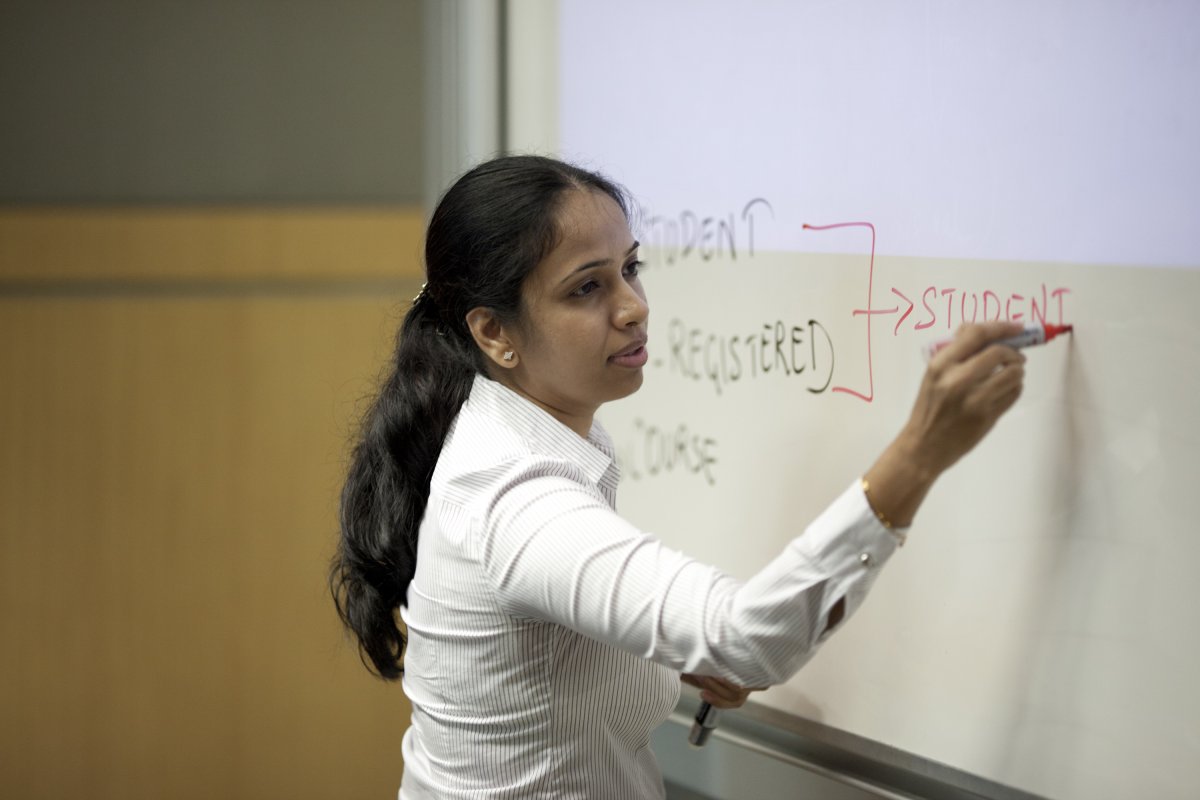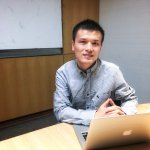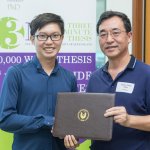By the SMU Postgraduate Research Programmes Team
To train world-leading scholars and practitioners to be exemplary Professors – that’s what drives us at the SMU PhD programme. As such, teaching training is an important part of the programme that all our PhD students will experience.
Before they can graduate, students need to complete the Graduate Instructor Foundations in Teaching (GIFT) programme. The GIFT programme typically includes lesson planning, content development, instructional strategies, peer observation, and portfolio preparation – all of which are catered to help students prepare for the teaching assistant or graduate instructor assignments they will take on at SMU.
SMU PhD students get a first taste of teaching as teaching assistants while undertaking their own coursework and research in the early years. In their senior years, when students have more experience under their belts and have passed the Graduate Instructors English Assessment conducted by the SMU Centre for English Communication, they will then be able to serve as graduate instructors. There is certainly no better way to learn than through hands-on experience. As graduate instructors at SMU, PhD students are tasked with the full responsibility of teaching an actual undergraduate or postgraduate course, with much support from SMU. Students are given access to a host of training resources and programmes provided by the Centre for Teaching Excellence which includes learning alongside the SMU faculty.
As a result of the resources and attention SMU places in training its PhD students for academic placements, our graduates hit the ground running, securing top placements in local and international institutions – such as Chinese University of Hong Kong, Sun Yat-sen University, the University of Luxembourg, the University of Hanover, and the National University of Singapore.
Besides adding value to one’s curriculum vitae, such teaching experiences allow PhD students to build closer professional relationships with faculty members and students. It also helps to facilitate collaborative projects, as well as enhance their communication skills.
Jose Yong Jin Chuan, a senior student in the PhD in Psychology programme, shared, “I have done teaching assistantships since 2009 and these experiences have given me the opportunity to work very closely with academics and professors, particularly during the earlier years when I was still trying to get a foot into the academic world. I knew two of my most significant mentors, Dr Norman Li and Dr Michael Benoliel, through working with them as a teaching assistant and research assistant. I learnt a lot about their teaching styles from a perspective that goes beyond being a student in their class.” He continues, “The experience has taught me to try and communicate my academic ideas more effectively, as academic ideas tend to be abstract and complex.”
Besides training future faculty members on communicating complex thoughts, teaching experience also exposes students to a diverse range of ideas and approaches. Li Zhefei, a second-year PhD in Business (Strategic Management and Organisation) student who was a teaching assistant (TA) for a Master of Business Administration (MBA) course, says, “I felt being a TA for an MBA course was helpful for me. Hearing students express their ideas definitely brought some new perspectives in terms of the practical implications of many topics.”
Meanwhile, Huang Naqun, a fourth-year PhD in Economics student, praised the holistic nature of SMU’s professional preparation programme which covers not just teaching methods, but also language training and public speaking: “I was a teaching assistant in Assistant Professor Jing Li’s Real Estate Economics class. I enjoyed interacting with the students and learning about what’s on their minds. All of this experience and training, which includes the English and public speaking programmes organised by SMU’s Office of Postgraduate Research Programmes, is really helping me become a better teacher.”
Even those who have not formally taught have benefitted from our rigorous preparatory training. Kasthuri Jayarajah is a third-year PhD in Information Systems student who has yet to be a teaching assistant, but she has undergone the Graduate Development Programme, which comprises six core modules and two electives on topics ranging from lesson planning to assessment. She even had to complete a micro-teaching session, for which she received immediate and invaluable first-hand feedback.
Teaching and being responsible for actual students in classes may sound daunting, but with comprehensive teaching and presentation training, SMU PhD students are more than prepared for the challenge!
[Feature photo: Swapna Gottipati (SMU PhD in Information Systems, 2014 graduate), teaching an undergraduate class at SMU.]








